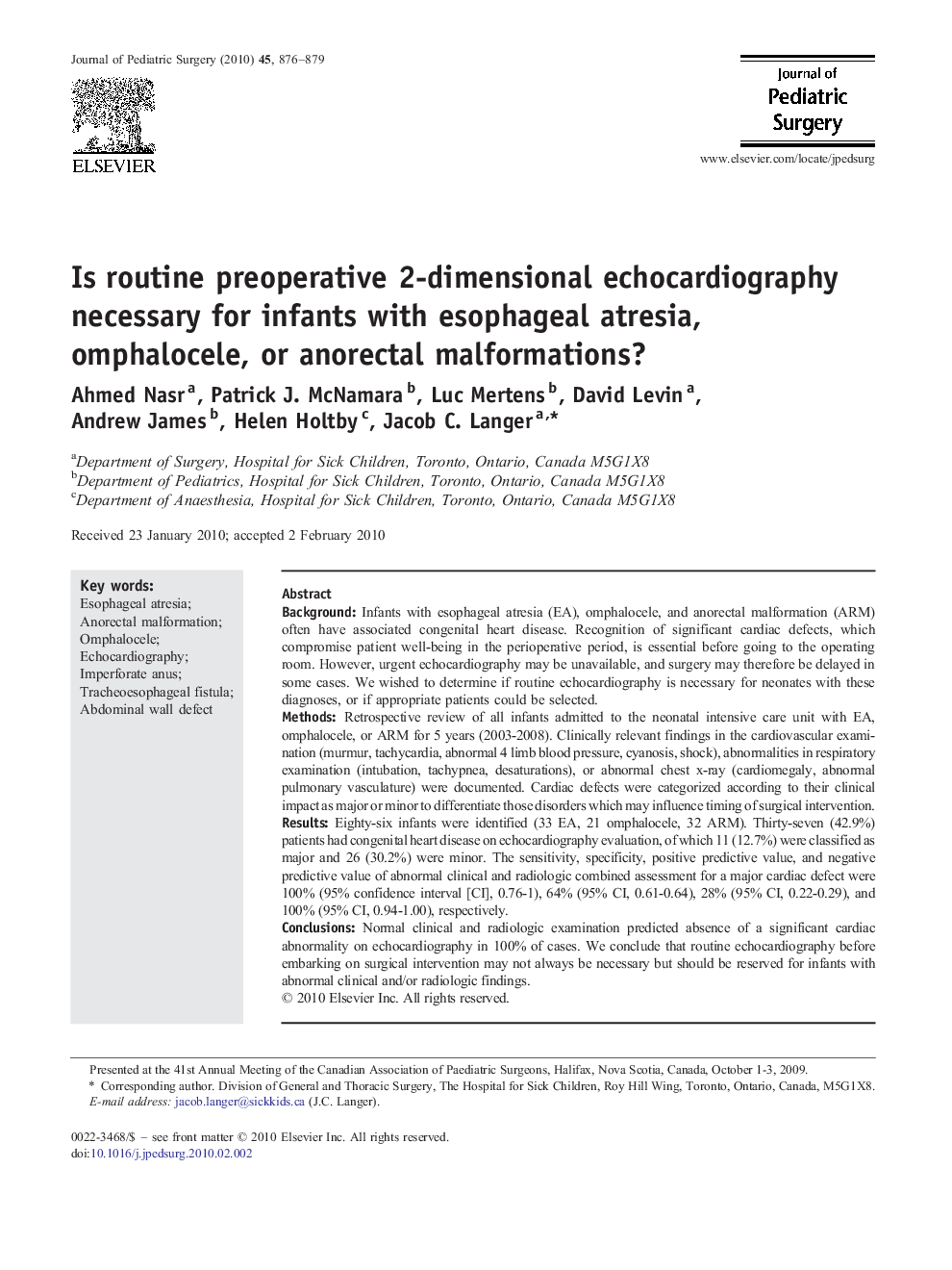| Article ID | Journal | Published Year | Pages | File Type |
|---|---|---|---|---|
| 4157737 | Journal of Pediatric Surgery | 2010 | 4 Pages |
BackgroundInfants with esophageal atresia (EA), omphalocele, and anorectal malformation (ARM) often have associated congenital heart disease. Recognition of significant cardiac defects, which compromise patient well-being in the perioperative period, is essential before going to the operating room. However, urgent echocardiography may be unavailable, and surgery may therefore be delayed in some cases. We wished to determine if routine echocardiography is necessary for neonates with these diagnoses, or if appropriate patients could be selected.MethodsRetrospective review of all infants admitted to the neonatal intensive care unit with EA, omphalocele, or ARM for 5 years (2003-2008). Clinically relevant findings in the cardiovascular examination (murmur, tachycardia, abnormal 4 limb blood pressure, cyanosis, shock), abnormalities in respiratory examination (intubation, tachypnea, desaturations), or abnormal chest x-ray (cardiomegaly, abnormal pulmonary vasculature) were documented. Cardiac defects were categorized according to their clinical impact as major or minor to differentiate those disorders which may influence timing of surgical intervention.ResultsEighty-six infants were identified (33 EA, 21 omphalocele, 32 ARM). Thirty-seven (42.9%) patients had congenital heart disease on echocardiography evaluation, of which 11 (12.7%) were classified as major and 26 (30.2%) were minor. The sensitivity, specificity, positive predictive value, and negative predictive value of abnormal clinical and radiologic combined assessment for a major cardiac defect were 100% (95% confidence interval [CI], 0.76-1), 64% (95% CI, 0.61-0.64), 28% (95% CI, 0.22-0.29), and 100% (95% CI, 0.94-1.00), respectively.ConclusionsNormal clinical and radiologic examination predicted absence of a significant cardiac abnormality on echocardiography in 100% of cases. We conclude that routine echocardiography before embarking on surgical intervention may not always be necessary but should be reserved for infants with abnormal clinical and/or radiologic findings.
